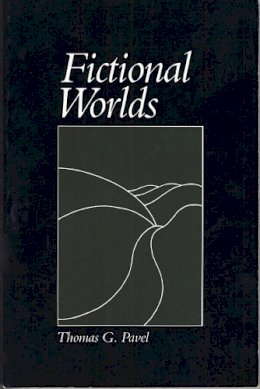
Stock image for illustration purposes only - book cover, edition or condition may vary.
Fictional Worlds
Thomas G. Pavel
€ 50.22
FREE Delivery in Ireland
Description for Fictional Worlds
paperback. Created worlds may resemble the actual world, but they can just as easily be deemed incomplete, precarious, or irrelevant. Why, then, does fiction continue to pull us in and, more interesting perhaps, how? In this beautiful book Pavel provides a poetics of the imaginary worlds of fiction, their properties and their reason for being. Num Pages: 190 pages. BIC Classification: DSK. Category: (P) Professional & Vocational; (UP) Postgraduate, Research & Scholarly; (UU) Undergraduate. Dimension: 235 x 158 x 11. Weight in Grams: 298.
Read more
Creators of fiction demand that we venture into alien spaces, into the worlds of Antigone, Don Quixote, Faust, Sherlock Holmes. Created worlds may resemble the actual world, but they can just as easily be deemed incomplete, precarious, or irrelevant. Why, then, does fiction continue to pull us in and, more interesting perhaps, how? In this beautiful book Thomas Pavel provides...
Product Details
Format
Paperback
Publication date
1989
Publisher
Harvard University Press United States
Number of pages
190
Condition
New
Number of Pages
190
Place of Publication
Cambridge, Mass, United States
ISBN
9780674299665
SKU
V9780674299665
Shipping Time
Usually ships in 7 to 11 working days
Ref
99-1
About Thomas G. Pavel
Thomas G. Pavel is Professor of Literature, University of California at Santa Cruz.
Reviews for Fictional Worlds
Pavel’s work is an eloquent statement of one of the purposes of fiction: to allow the reader into a ‘made-up’ world so that the reader is allowed to invent that world himself… He challenges formalism, structuralism and textualism to make a case for seeing fiction, not so much as an aberration of culture, but rather as an integral, though marginal,...
Read more